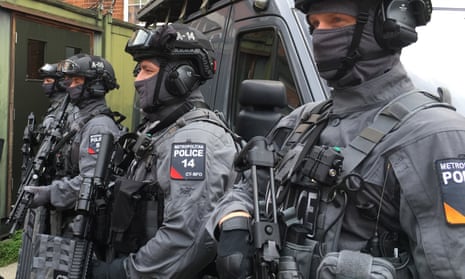Britain is facing a level of threat from Islamic State militants not seen since the IRA bombings of the 1970s, according to Britain’s new terror chief.
Max Hill, one of the country’s leading terrorism prosecutors, warned that Islamist extremists were planning “indiscriminate attacks on innocent civilians” on a scale similar to those staged more than 40 years ago by the IRA.
The warning comes just days after Hill, who helped to convict the failed July 2005 London suicide bombers, was named as the new independent reviewer of terrorism legislation, replacing David Anderson.

In his first interview since securing the post, Hill said militants were targeting cities and posed “an enormous ongoing risk, which none of us can ignore”.
He told the Sunday Telegraph: “In terms of the threat that’s represented, I think the intensity and the potential frequency of serious plot planning – with a view to indiscriminate attacks on innocent civilians of whatever race or colour in metropolitan areas – represents an enormous ongoing risk that none of us can ignore.”
He went on: “So I think there is undoubtedly significant ongoing risk that is at least as great as the threat to London in the 70s.”
The IRA abandoned its armed struggle for an end to British control of Northern Ireland and unification with Ireland in a 1998 peace deal.
More than 3,600 people were killed, including at least 1,000 members of the British security forces, during the sectarian conflict that began in the late 1960s.
British security officials have repeatedly said that Isis militants, who are losing ground in Iraq and Syria, will target the UK.
While Hill compared the severity of the threat they posed to the risks Britain faced in the dark days of the IRA, he said it would be wrong to “draw a simple conclusion between Irish republicanism and the ideology of so-called Islamic State”.
Hill, who was praised by the home secretary, Amber Rudd, for his “wealth of experience and legal expertise” following his recent appointment, also expressed fears about the imminent return of hundreds of British jihadis who have been fighting for Isis in Syria.
He said: “It’s an enormous concern that large numbers – we know this means at least hundreds of British extremists who have left this country in order to fight – are now returning or may be about to return.”
